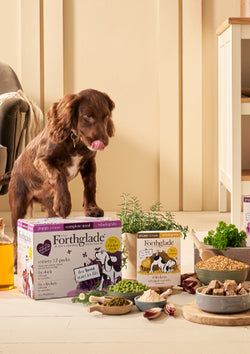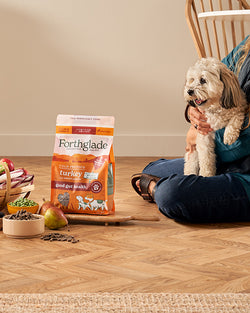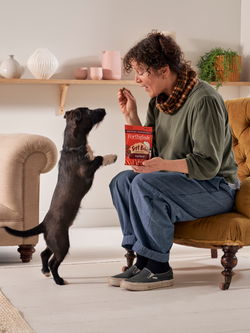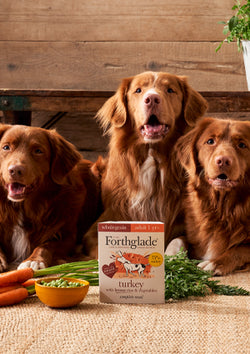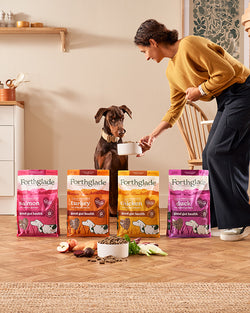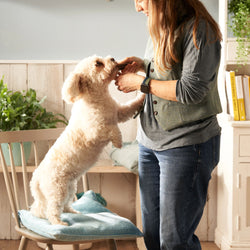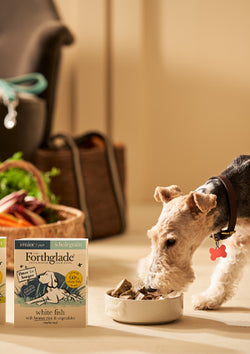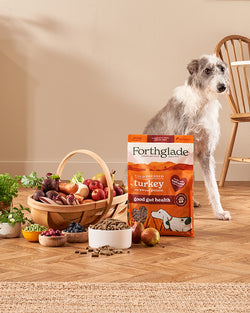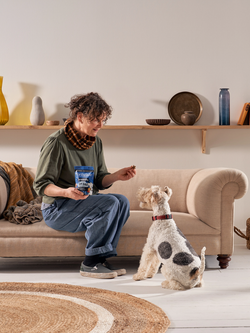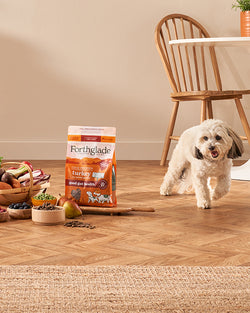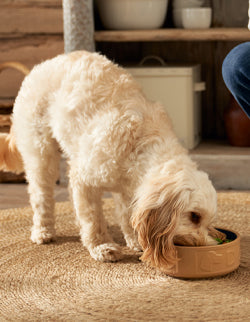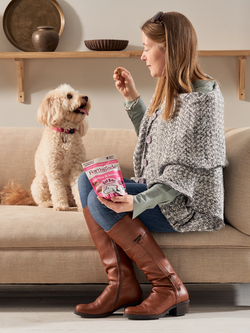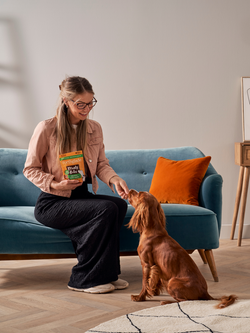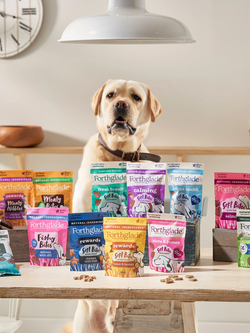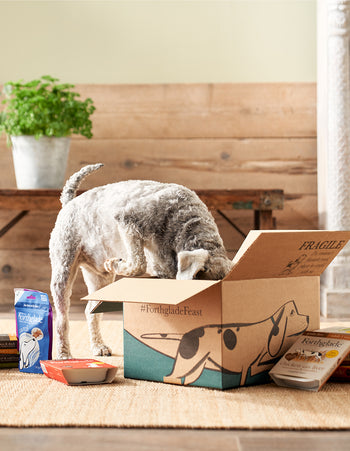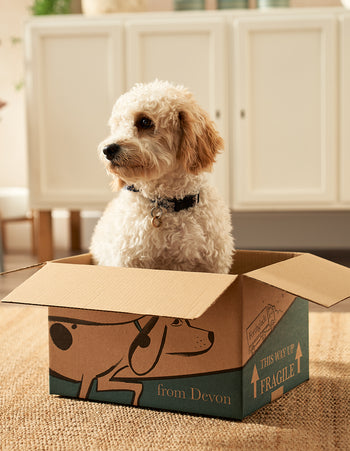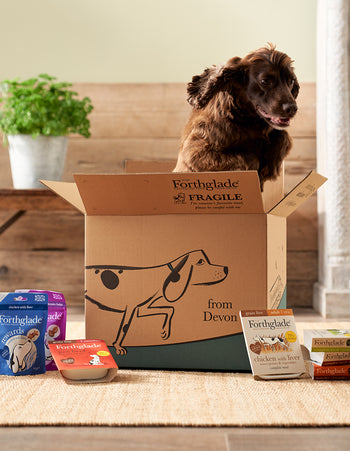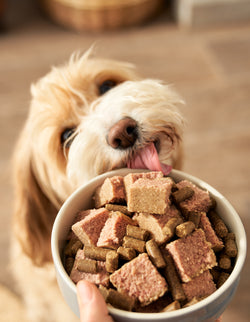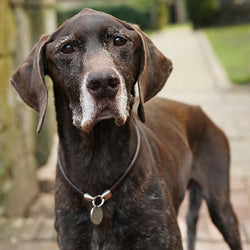When & How to Switch a Puppy to Dog Food
Working out when to switch from puppy food to adult dog food and the best way to do it depends on a number of factors, including breed, age and maturity.
Feeding a nutritionally-balanced diet remains just as important for an adult dog as it does for a young puppy, however a dog’s nutritional needs change when they reach adulthood. To help you navigate this important milestone, we’re shedding some light on switching to adult food and giving your dog everything they need to continue growing into a healthy, happy adult dog,
Can puppies eat adult dog food?
While, in short, it’s not a problem to feed your puppy adult dog food, it is recommended that puppies are fed a puppy-specific diet.
What is the difference between puppy food and dog food?
Puppy diets tend to have added nutrients, minerals and compounds that support different forms of development as your puppy ages. Our range of wet puppy food, for instance, contains Salmon Oil – a source of Omega 3 – which supports brain development, as well as chondroitin and glucosamine, which supports bone and joint development.
Once your dog reaches maturity, they will no longer need the additional calories and specific nutritional components required for growth. They’ll be ready for a new recipe, packed with a differently balanced set of nutrients, carbs, fats, proteins, vitamins and minerals to maintain their health and vitality.
When to switch a puppy to dog food
So how do you know when to switch your puppy to adult dog food? The Kennel Club recommends making the change when your puppy reaches about 80% of their full adult size. All dogs vary and will grow at different rates, and have different activity levels which can also impact how long they stay on puppy food for.
How long should a puppy eat puppy food?
Your energetic pup will be growing at an incredible rate, so their food really needs to power them and support their growth. Their constant development requires higher levels of fat to boost their weight, protein to support their growth and calcium and phosphorus to ensure healthy bone development, and so it’s important that puppies eat the right diet for the right time and that they’re not forced to grow too quickly as they can end up with poor bone and joint health.
We recommend feeding your little one puppy food from two to 12 months. Then start to consider when to switch your puppy to adult dog food. Our puppy food has been specifically tailored for growing puppies – you can also try out our Puppy Feeding Guide to help you find the right recipe for you.
So when can puppies eat adult food?
As a general rule, you can make a decision on when to stop feeding puppy food by considering your puppy’s breed.
Smaller – medium breeds reach adult size at 9-12 months, and so will be ready to transition to puppy food at 9-10 months. These smaller breeds typically have a faster metabolism and burn energy at a faster rate, potentially requiring up to twice as many calories as larger breeds, and so they may benefit from staying on puppy recipes for longer, as the formula supports muscle growth and contains higher calories and fat.
The same goes for working dogs or dogs that are especially active who will also need enough calories to support their high energy levels.
Larger dogs generally have slower metabolisms and slower rates of growth, typically reaching adulthood anywhere between 15 – 24 months (depending on just how large they are).
If in doubt, your vet will be able to advise you on when to move your dog to adult food.

How to change from puppy food to adult dog food
We’d always recommend switching up your dog’s food up gradually so their tummy can get used to the new formula. Allow at least a week for the transition, and if possible, up to 10 days. Simply increase the amount of adult dog food and give less of the puppy food every day until you’ve completed the transition period.
If your young dog has an upset stomach or declines to eat for longer than a day or two, get in touch with your vet.
How much adult dog food will my dog now need?
As your puppy transitions into adulthood, you can expect to decrease the amount of food you’re giving them. The right food to suit your dog’s needs is paramount, and feeding them the correct amount is just as important. Follow the guidelines for your dog’s weight on the packaging, or take a look at our Feeding Guide Calculator. To find out how much your dog weighs, ask your vet. Or work it out at home if your dog is small enough to pick up. Stand on the scales while carrying your dog to calculate their weight.
Once your dog has settled with their new food, keep an eye on their weight to check whether you’re feeding them the right amount. A simple way to know if your dog is at their ideal weight is by doing the rib test. It’s easy and your dog will love the extra attention! Glide your hands over their ribs – if you can feel but not easily see their last two or three ribs, then your dog is doing just fine.

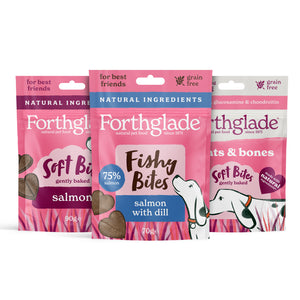
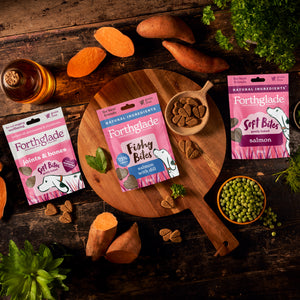
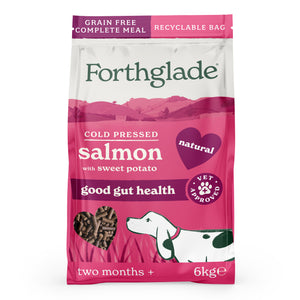
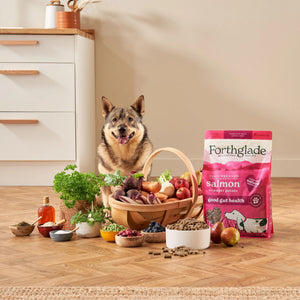
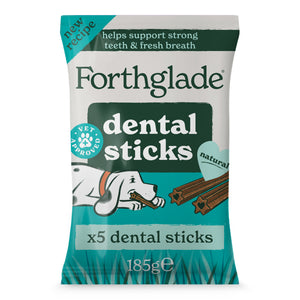

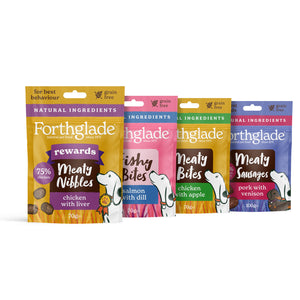
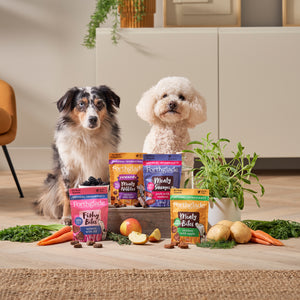


 Over 13,000 5* Reviews
Over 13,000 5* Reviews
 Subscribe & Save At Least 10% Off Every Order!
Subscribe & Save At Least 10% Off Every Order!


